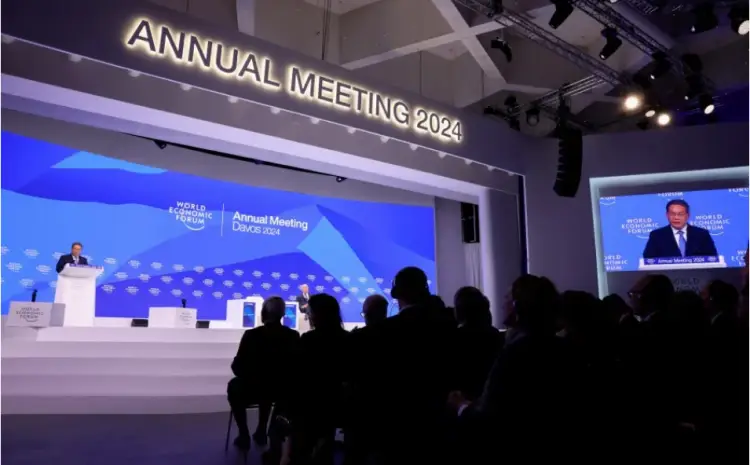Davos: Li Qiang urges human-centric AI and dismantling trade “obstacles”

Speaking at the World Economic Forum in Davos, Chinese Premier Li Qiang emphasised the need for human control over machines, advocating a human-oriented approach to AI development. He stressed the importance of guiding AI in a direction that supports humanity’s progress and highlighted the necessity of establishing a red line in AI development to prevent any adverse impact on society.
His remarks coincided with the WEF’s focus on global risks, including conflicts in Ukraine and Gaza, climate change, and the rapid rise of AI. While not directly addressing recent events, he concentrated on trade, China’s economy, and AI, asserting that new discriminatory trade and investment measures hinder the world economy’s lifeblood flow.
Without naming specific countries, he hinted at challenges in trade relations, echoing concerns US and European companies raised about obstacles to fair business practices in China.
European Commission President Ursula von der Leyen met with Li Qiang and said she had “frank” discussions about trade imbalances and the responsible use of AI. She said that the EU is ready to work with China to strengthen dialogue and deepen cooperation.
Concerns were raised at the World Economic Forum about AI’s potential threats, including misinformation and disinformation.
“Europe must up its game and show the way to responsible use of AI,” said von der Leyen.
Li said: “AI must be guided in a direction conducive to humanity’s progress. So there should be a red line in AI development, a red line that must not be crossed.”
He said AI should be developed with “good governance” and without “camp-based division or confrontation”.
“It is essential that we work together and coordinate,” he said.




